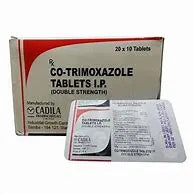About Diclofenac – Your Pain and Inflammation Fighter
If you’re dealing with achy joints, pulled muscles, or that nagging pain that just won’t quit, diclofenac might be what your doctor prescribes to help you feel human again. This medication belongs to a group called NSAIDs – basically, it’s in the same family as ibuprofen, but often works better for certain types of pain.
Here’s how it works: Your body makes chemicals called prostaglandins when you’re injured or inflamed. These chemicals are what make you hurt and swell up. Diclofenac blocks the enzymes that create these troublemakers, which means less pain and swelling for you.
What You’re Getting Diclofenac comes as tablets that you swallow. The active ingredient is diclofenac potassium, and each tablet packs enough punch to tackle moderate to severe pain.
When Doctors Prescribe It Your doctor might give you diclofenac for all sorts of painful situations:
- Arthritis (both rheumatoid and the wear-and-tear kind)
- Stiff, painful spine conditions
- Gout flare-ups that make you want to scream
- Muscle and joint problems like frozen shoulder, tendinitis, or bursitis
- Pain from injuries – broken bones, sprains, back pain that has you walking like a robot
- After dental work or minor surgery
- Brutal menstrual cramps
- Migraine headaches that knock you flat
How Much and When Most adults start with 50 mg every 8 to 12 hours. Your doctor might have you take anywhere from 75 to 150 mg total per day, split into 2 or 3 doses. They’ll figure out what works best for your situation.
For really bad cramps, some doctors start with a higher first dose, then drop it down. For migraines, you might dissolve one tablet in water and drink it.
The key thing is using the smallest amount that actually helps, and only for as long as you really need it.
Taking It the Right Way Always take diclofenac with food or milk. Your stomach will thank you for this – NSAIDs can be rough on an empty stomach. Swallow the tablets whole with plenty of water. Don’t chew or crush them.
When You Shouldn’t Take It Don’t take diclofenac if:
- You’re allergic to it or other pain relievers like ibuprofen
- You’ve had stomach ulcers or bleeding before
- Your liver, kidneys, or heart aren’t working well
- You get asthma attacks from aspirin
- You’re pregnant, especially in the last few months
What to Watch Out For Most people tolerate diclofenac pretty well, but some folks get:
- Headaches, dizziness, or feeling wiped out
- Upset stomach, nausea, or diarrhea
- Skin rashes
- More serious stuff like stomach bleeding (especially if you’re older)
The scary thing about stomach bleeding is that it can happen without warning signs. That’s why doctors are careful about who gets this medication and for how long.
Important Stuff to Remember If you forget a dose, take it when you remember – unless it’s almost time for the next one. Don’t double up to catch up.
If you accidentally take too much, you might feel sick, dizzy, or have stomach pain. Get medical help right away if this happens.
Keep your pills at room temperature, somewhere dry, and away from kids who might think they’re candy.
Mixing with Other Things Tell your doctor about everything else you’re taking. Diclofenac doesn’t play nice with blood thinners, other pain medications, or certain antidepressants. Even some herbal supplements can cause problems.
Skip the alcohol while you’re on diclofenac – it increases your risk of stomach bleeding. Same goes for spicy foods and smoking.
The Real Deal Diclofenac can be a game-changer when you’re dealing with pain that’s interfering with your life. But it’s not something to mess around with on your own. Your doctor prescribed it because they think the benefits outweigh the risks for your specific situation. If something doesn’t feel right while you’re taking it, don’t just push through – call and check in with them.
Reviewed by Dr. Huma Riaz, Consultant Rheumatologist and Pain Specialist
This gives you the basics, but your doctor knows your medical history and what other treatments might work alongside diclofenac. When you’ve got questions about your pain management plan, they’re the best person to ask.








Reviews
There are no reviews yet.